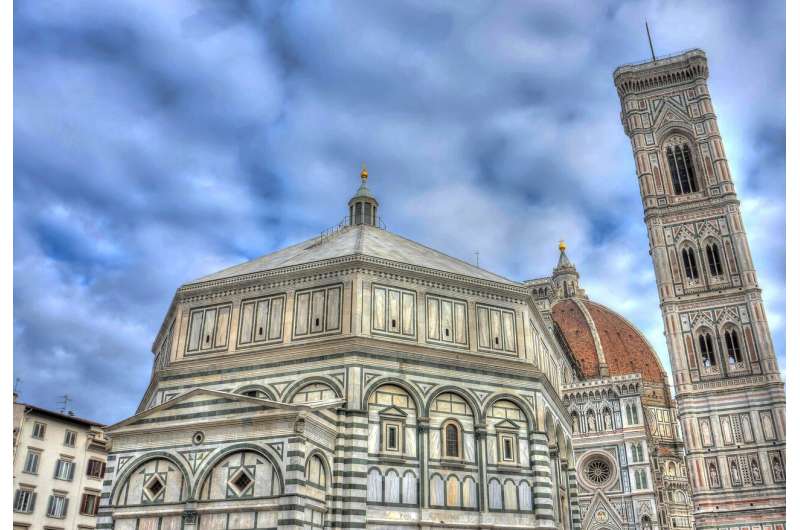Credit: CC0 Public Domain
Italy was spending its last day in total lockdown Sunday, but the partial easing of strict coronavirus measures after a two-month shutdown was causing anxiety and confusion rather than elation.
Across the country, attempts to make plans for the first day of freedom were hampered by uncertainty over the rules. The government has a list of permitted activities, but regions are also making up their own regulations.
"I'm hoping this morning's paper will clear it up. I want to take my old mum to the seaside, can I?" asked 53-year old cleaner Pietro Garlanti as he queued patiently in the sun at a kiosk in the capital's historic centre.
In this first stage, Italy's 60 million inhabitants will be able to move more freely within their own regions, visiting relatives, going to re-opened parks with their children and cycling or running further from home.
None of that can be done in groups, however, so big family lunches are forbidden. Going to holiday homes is not allowed. And people cannot leave their own regions, except for emergencies or for health reasons.
Italy's 20 regions, however, have put their own spin on the rules. Two of them, Veneto and Calabria, even lifted their lockdowns early, opening to bars and restaurants with outdoor tables this week.
Liguria is thinking about letting people go sailing in small groups, and is reopening its beaches. So is the Marghe region, but for walks not sunbathing. Emilia-Romagna is keeping them closed, even to those who live by the sea.
"We've been waiting with longing for May 4, but now it's finally arrived it's a letdown. Until they tell me I'm really free, I'll feel paranoid, like I'm breaking the rules in some way," 37-year old Michele Magna told AFP.
'Extremely worried'
Prime Minister Giuseppe Conte further puzzled many by telling Italians visits with "congiunti" were allowed.
The Italian word can mean either relatives or kinsmen. He then attempted to clarify by saying that extended to people who had "relationships of steady affection".
The government was forced Saturday to publish a Q&A that specified people could see extended relatives—including, for example, the children of their cousins—but friends, however dear, were out of bounds.
Teacher Alessandra Coletti thought the confusion would be used "as an excuse by many for a sort of free- for-all".
The government hopes easing the coronavirus lockdown, the longest in the world, will reboot a crippled economy.
There were further encouraging signs Sunday that the pandemic had been brought under control. Italy reported 174 new coronavirus deaths, its lowest toll since the stay-at-home orders were imposed on March 10.
But Conte has warned he will be watching closely to see if the virus flares up again, and is ready to enforce localised lockdowns if necessary to stop the return of a pandemic which has claimed nearly 29,000 lives.
"I'm extremely worried about the reopening, I don't trust people to act responsibly," said salesman Tiziano Mazzoli.
Father Duilio Diligente, 38, said he was concerned about how children such as his eight-year old would re-adjust.
"We were out on our bikes last night in an empty square, when he suddenly swerved massively to avoid a man and his dog, and fell off. He said he was afraid of going near them in case they had the virus," he said.
"It's going to take time for us to be really, psychologically ready for the end of the lockdown."
© 2020 AFP























